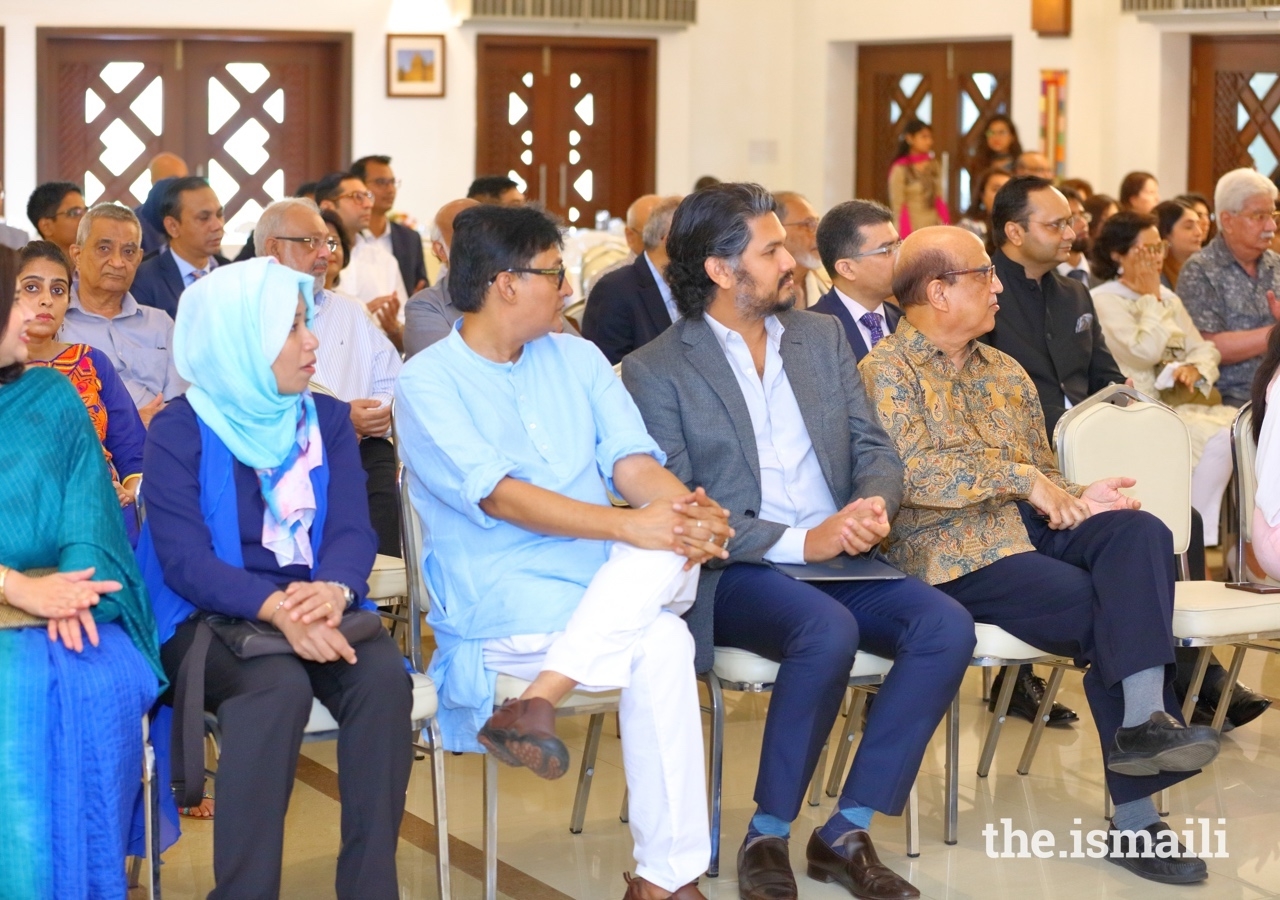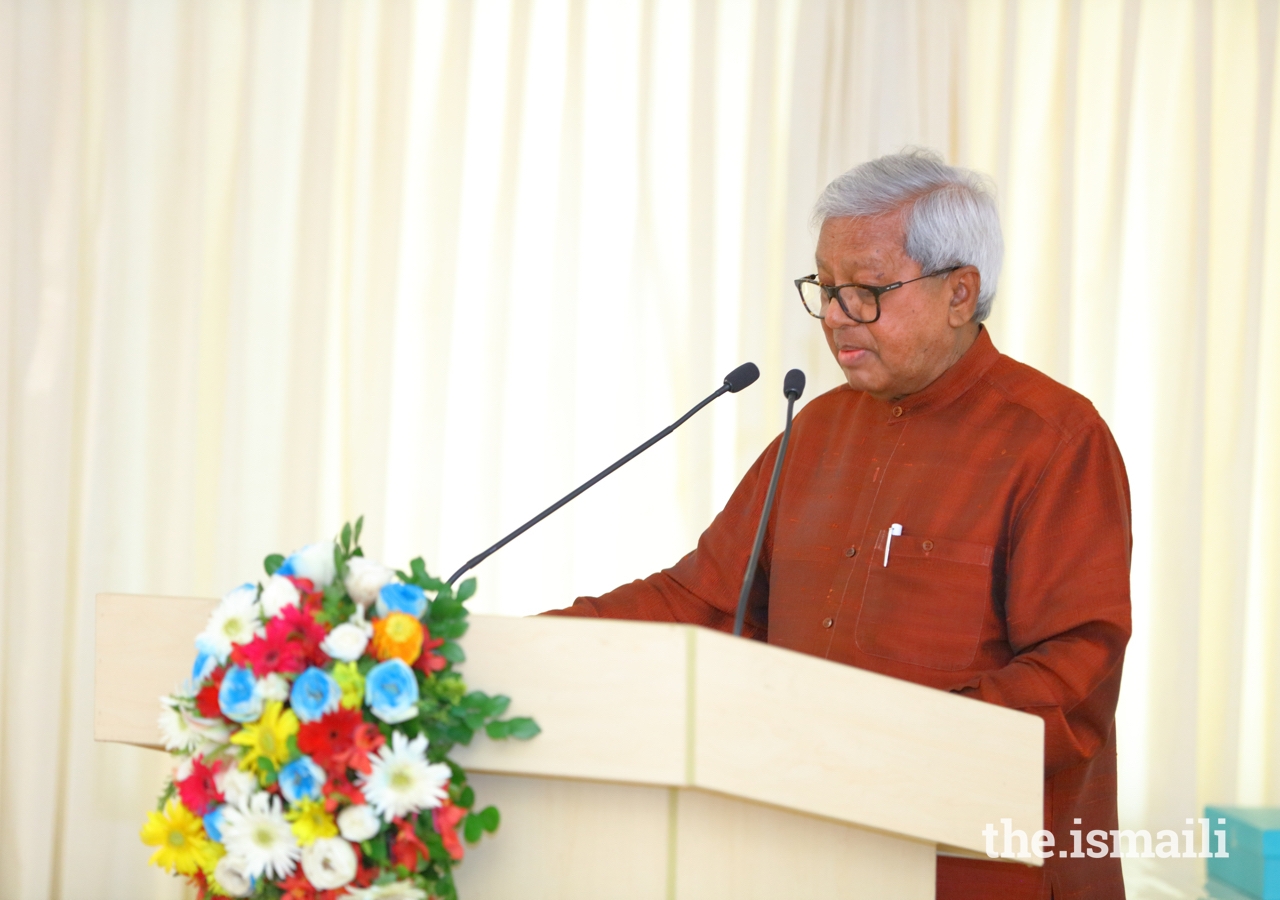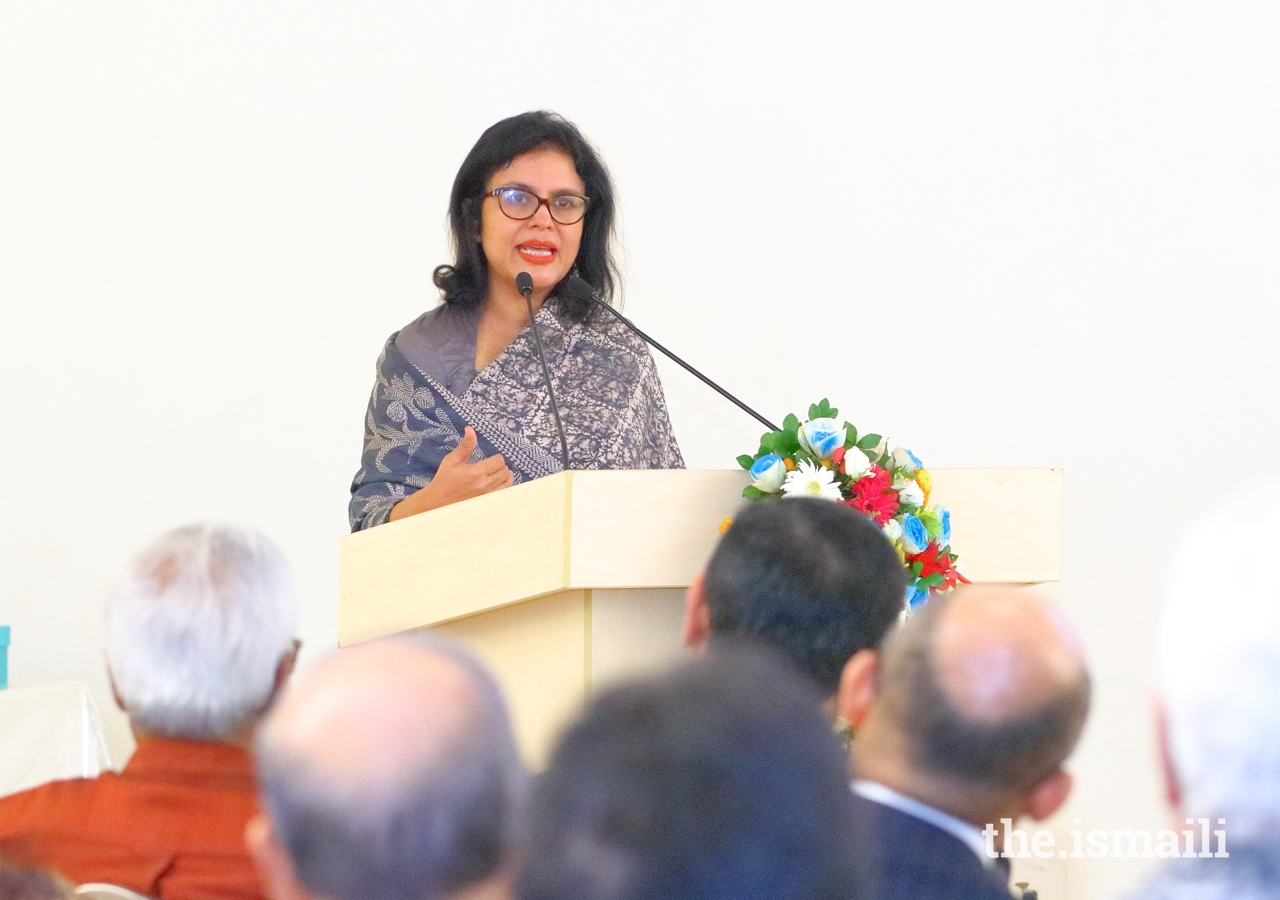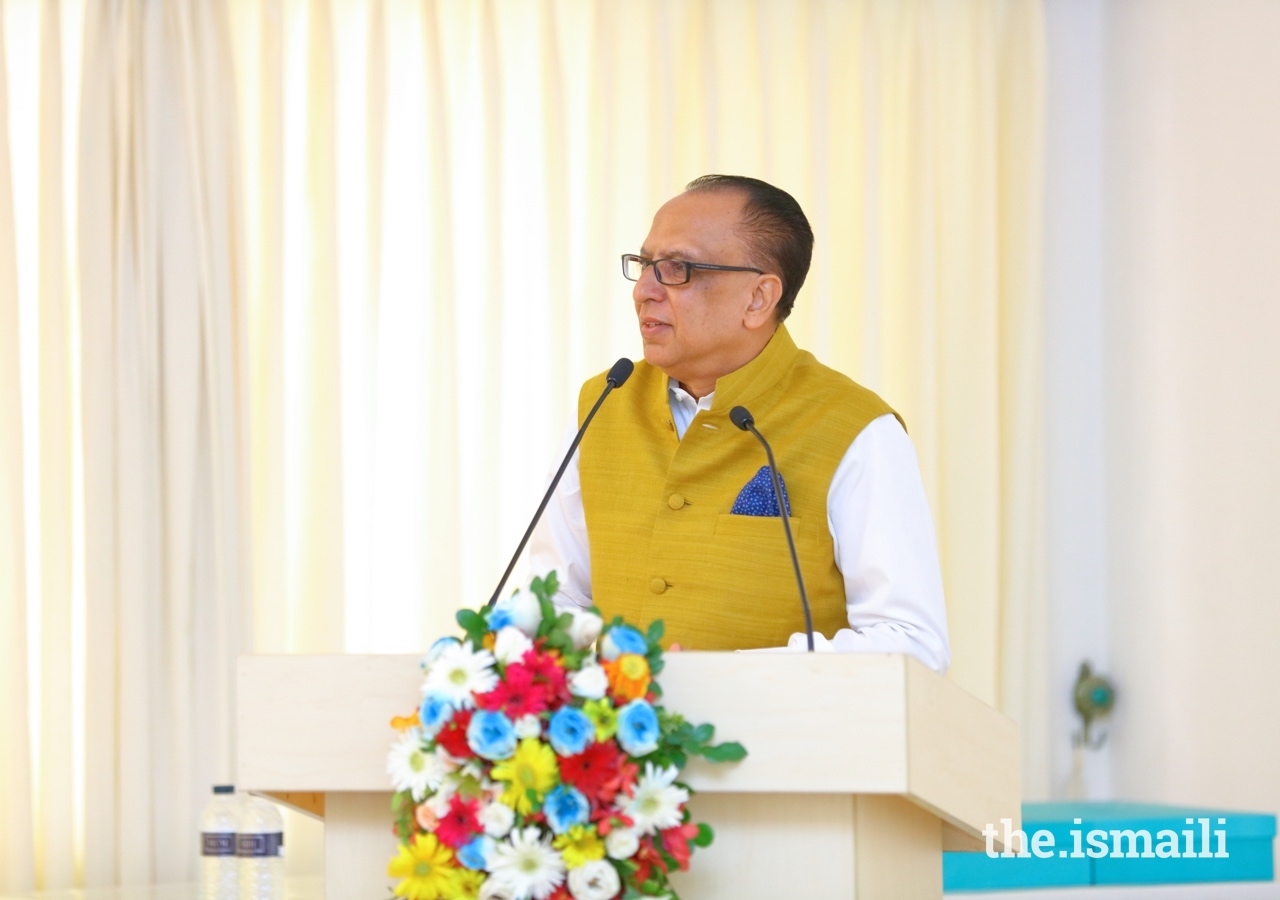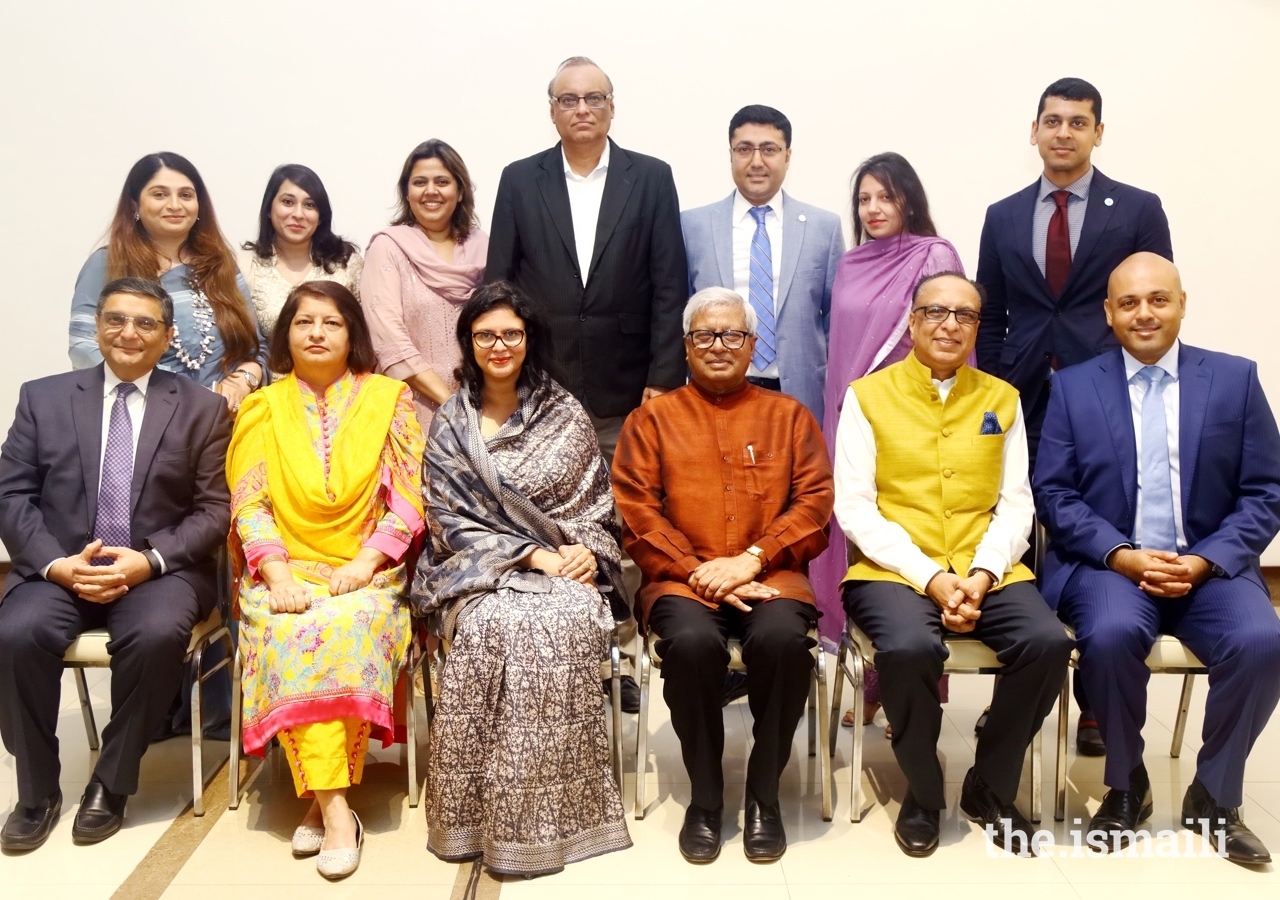Mr Sulaiman Ajanee, President of the Ismaili Council for Bangladesh, welcomed guests from academia, civil society, and the private sector, along with members of the Jamat to the Centre, and spoke of the values which underpin the Aga Khan Development Network (AKDN). One of these is the ethic of inclusiveness, which draws upon Islam’s vision of a society which is inclusive, and embraces human difference.
Sir Fazle Hasan Abed was invited to deliver the keynote address on this occasion, and to share his experiences as one of the leading figures of civil society in the country. He is the Founder and Chairman of the non-governmental organisation BRAC (Building Resources Across Communities).
Sir Abed remarked that cosmopolitanism is an “acceptance and appreciation of the fact that we human beings will choose to express ourselves in different ways.” Sir Abed further shared how a cosmopolitan ethic has been reflected in the work of BRAC, which began operations in Bangladesh, before expanding further afield, to other parts of Asia, Sub-Saharan Africa, and Central America.
Dr Rubana Huq, also shared her thoughts with guests gathered at the event. Dr Huq currently serves as Managing Director of the Mohammadi Group, a garments manufacturer which has diversified into fields as wide-ranging as real estate, energy, and media. Speaking of the dynamic potential of human agency, she said that a “cosmopolitan ethic means that we neither expect nor desire that every person or society should converge on a single mode of life, that is not possible. But we have a moral and ethical choice to positively change whatever we can within our own means.”
In his remarks, Mr Munir M. Merali, AKDN Resident Diplomatic Representative to Bangladesh, presented the organisation’s ethical framework and how it is positioned as a contemporary endeavor of the Ismaili Imamat to realise the social conscience of Islam through institutional action. Representative Merali further explained that the Network brings together, under one coherent aegis, institutions and programmes whose combined mandate is to help relieve society of ignorance, disease and deprivation without regard to the faiths or national origins of people whom they serve.
Referring to speeches made by Mawlana Hazar Imam on the subject, Representative Merali expressed that a “cosmopolitan ethic also means to bring hope where there is despair and poverty, to embrace diversity, and to promote pluralism while employing meritocracy in all that we do.”
Imamat Institutions have been present in Bangladesh since 1960s when the Ismaili Imamat directed investments towards what became a thriving jute mill industry. Today, AKDN works in the areas of early childhood development, pre-tertiary education, and financial services, aiming to improve living conditions and opportunities for people regardless of religion, race, ethnicity or gender.
Following the signing of the Protocol of Cooperation with the Government in 2013, AKDN today is considered one of the partners of choice with further investments directed to to help improve and build-on the education sector in the country. With this mind, and in line with this objective, AKDN is in the process of establishing the Aga Khan Academy Dhaka, a state-of-the-art, residential school where students are selected based on merit, regardless of socio-economic, cultural, or religious background, facilitating a diverse and fertile environment in which students can flourish. A key strand of the Academy’s curriculum is pluralism; encouraging students in their formative years to respect and embrace human difference.
One of the key objectives of the Academies programme is to develop home-grown, ethical leaders of the future who may one day contribute to the economic and social development of the country.

